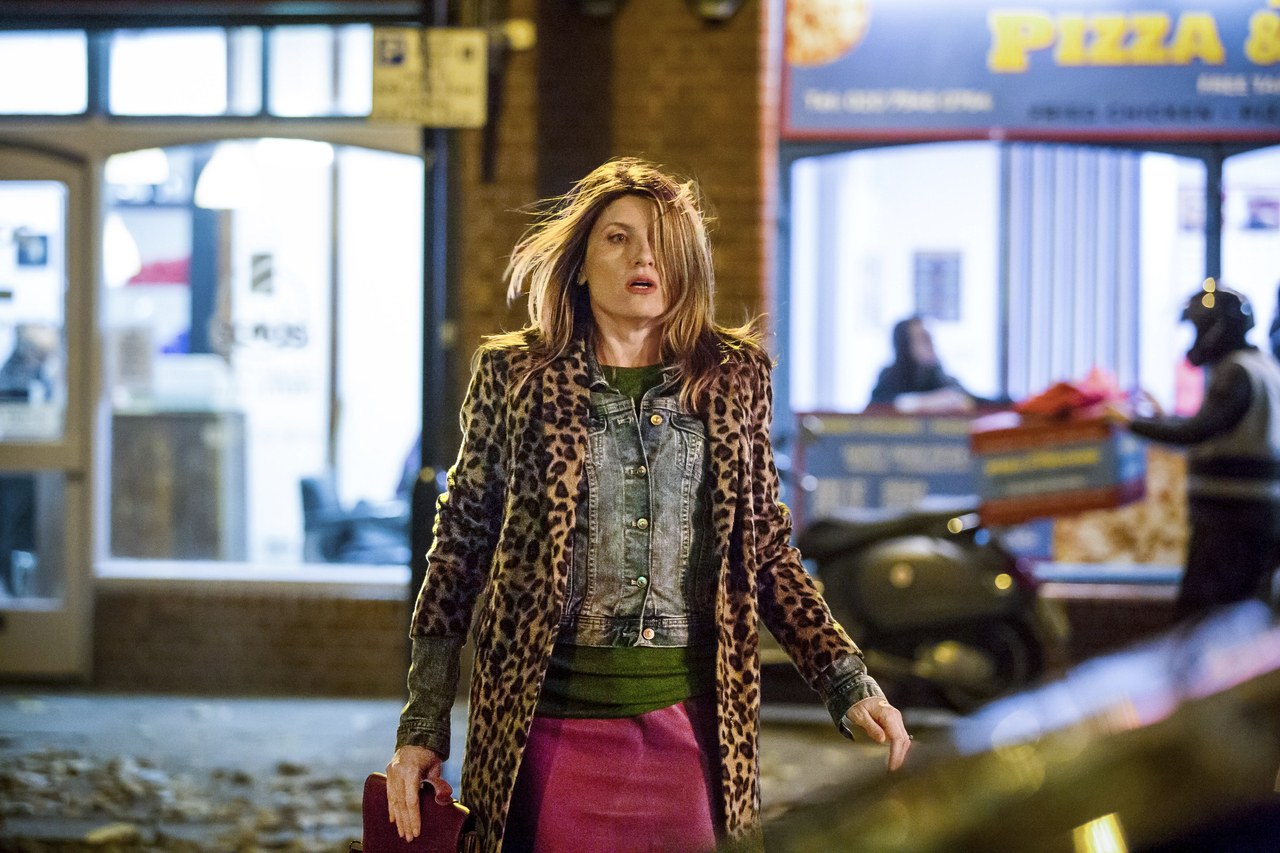Sharon Horgan Is the Realest Mother on TV

In a world short on joy, humor can be a unifier and a survival tool. In that spirit, we bring you our Comedy Issue, a month-long celebration of funny (and fearless) women and the enduring power of a good laugh.
Before she was one of comedy’s most cult-loved voices, Sharon Horgan was adrift. After moving to London from a turkey farm in rural Ireland, she waited tables, toiled away at an office job, and even sold bongs to stoners. “A lot of trying and failing,” she recalls of her twenties. “I basically did everything I could possibly do to avoid starting my actual, genuine career.”
Then, at 35, she and longtime friend and fellow lackey Dennis Kelly wrote a sitcom all about their professional shortcomings. The raunchy Pulling, which aired on the BBC from 2006 to 2009, was a success—and a wake-up call. “With Pulling I found out that writing about something tragic and sad can be fully hilarious if you look at it from a slightly different angle,” she says. “I haven’t wanted to write in a different way since.”
Sure, she’s the mother dragon behind foul-mouthed tragicomedies like Divorce and Motherland. But it’s Catastrophe, the Amazon show she co-created and stars in, that elevated her to the comedic pantheon. She’s earned a Best Writing Emmy nomination for the show and a BAFTA nod for her turn as Sharon Morris, an Irish woman in London who gets pregnant after a weeklong hookup with American Rob Norris (Rob Delaney) and dives headfirst into an unlikely relationship. (The story is based on Horgan’s own life. Six months after meeting British entrepreneur Jeremy Rainbird, she found out she was expecting. The couple is now married, with two daughters.)
The plot may sound like the setup for a schmaltzy rom com, but Catastrophe approaches everything from alcoholism and infidelity to motherhood with uproarious frankness. In season two, for example, Sharon is desperate to return to work after her second child is born. “To be honest, I didn’t realize how much I love teaching until I had to be around my own kids 24 hours a day,” she tells a stunned job interviewer before admitting that “it’s just hard…to know how to do things” and bursting into tears. “Sharon’s not afraid to admit when she’s lonely or depressed or any of those things you feel when you’re a mother,” Horgan, now 48, says. “She can be sweet and loving and scared and needy. And, equally, she can have balls of steel. I don’t know if that’s more common for Irish women, but I’ve got two personalities inside of me at all times.”
PHOTO: Ed Miller
Comedy of Errors
Horgan, in the season three finale of Catastrophe, says that “writing about something tragic can be hilarious.”
Directness, friends confirm, is a Horgan trademark. “She’s quite straightforward,” Kelly says. “I don’t think she analyzes herself or what she’s doing, and I don’t think she wants to. Partly because Sharon doesn’t want to be a wanker.” Says Delaney: “When we’re writing, we’re like two technicians in lab coats with the exact same goal of producing the best possible scripts. She’s taught me a lot about stories that make ironclad sense.”
“I don’t think she analyzes herself or what she’s doing, and I don’t think she wants to. Partly because Sharon doesn’t want to be a wanker.”
Despite the series’ brisk pace—each season is composed of six 24-minute episodes—the emotional center always holds. At the end of last season, Sharon is grappling with her dad’s recent death. “She’s not grieving properly. She’s not feeling the things she thinks she ‘should’ be feeling,” Horgan says. “One of the mums from my daughter’s school came up to me on the playground and said, ‘I have those same feelings. They made me feel awful, and [after watching], I feel a little less awful.’ That’s been our yardstick: to say things that maybe seem a bit gross or terrible and then be pleasantly surprised that other people feel them too.”
Horgan’s gift is finding the humanity in the humor. “When I look at Sharon’s work, I don’t think of it as deliberately dark,” Kelly says. “I think she’s just being honest about the world as she sees it.” And, for her, the funniest moments don’t require a clever pun or a zany coincidence. “It has to make us laugh. If we’re not laughing several times per page, we’re not doing it. But it doesn’t have to be a ridiculous sort of gag, either. It can be something so true it’s funny,” she says. “We like there to be two good story lines running solidly through the beginning, middle, and end. We don’t like to just have a series of events. We like shit to happen.”



